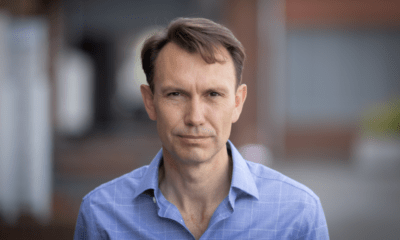Democracy & Governance
How To Make States Viable -By Cheta Nwanze
We have a lot of work to do in this country with regards to making our states viable and it begins with having the right people in the National Assembly and at the State Houses, because we can’t continue to have a situation where, as an example, you can’t register births and deaths in the entire country (one of the items on the Exclusive Legislative List) without Federal Government’s approval. That is, to put it simply ridiculous.

I was in Oxford a few weeks ago and met with a professor there who does quite a bit of work on and in Nigeria. Naturally, we go talking about a country he apparently loves and his sadness at Nigeria’s failure to work was very clear. In all the things he said, a few things caught my attention. I will focus on two here: “Each time I consult on a federal project, it takes a lot of work to get things done. The number of interest groups one has to carry along is absurd. But each time I work in a state, things get done pretty quickly.”
I’ll talk about this first comment in a future piece, but the second thing I want to highlight is this other gem: “There is so much focus on Lagos in the Nigerian imagination that I think is unfair. Governments should be scrutinised across states because the failure of the states has led to the overburdening of Lagos.”
I took issue with most of this statement, but let’s dispense with the one I agree with very quickly: considering that Lagos is the tiniest state in Nigeria geographically (0.39% of Nigeria’s land area), it has a very high share of the country’s population. According to the 1991 census, Lagos, with a population of 5.7 million, had 6.4% of Nigeria’s population. By 2006, Lagos had 9 million people, also 6.4% of the population.
We have not had a population census since 2006, but in 2011 and last year, the National Bureau of Statistics and National Population Commission did projections of the population based on random samplings of the EAs (Enumeration Areas) established in 2006. For 2011, Lagos was projected to have 16 million people (10.4% of Nigeria’s population), and in 2021, it was projected at 21 million people or 10.4% of the population.
These figures made me go back in time to previous censuses, and I found that in 1952 and 1963, Lagos was 1.21% of the population. For me it is curious: why was the population share relatively static between specific points, and went up sharply at other points?
It made me look at Abuja, for which we only have census figures for 1991 and 2006, and projections for 2011 and 2021. Abuja’s percentages are 0.42 (1991), 1% (2006), 1.2% (2011) and 1.7% (2022). In other words, Abuja is growing faster than Lagos in relative terms.
This brings the question, why?
Nigeria, sadly, is still federal led. A holdover of our military era where it is the Federal Government that dictates most of what happens in the country. This is shown in money flows and where people move to in their quest for relatively secure government jobs.
Lagos was Nigeria’s capital for 87 years and we cannot take away this history. There isn’t much you can do in Nigeria without getting Lagos involved, so it’s a bit misplaced when we say (or imply) “forget Lagos, what are the other states doing?” Let’s take the “simple” act of bringing in Foreign Direct Investment to the country. Many businesses that want to attract FDI register first in Lagos (or Abuja) before opening the main office where they want to domicile. It’s simply for practical purposes, it is easier for their foreign partners to “stop” in either Lagos or Abuja, plus all the regulators are in either city, so it makes sense to have a major office in one or both cities for “government relations.” The result though, is that when such investments finally do show up, they are as FDI for either Lagos or Abuja.
This shows in Internally Generated Revenue numbers. Basically, only Lagos and Ogun states routinely make more in IGR than they do from the Federation Account Allocation Committee, and Ogun’s “success” is a result of its proximity to Lagos.
We have a lot of work to do in this country with regards to making our states viable and it begins with having the right people in the National Assembly and at the State Houses, because we can’t continue to have a situation where, as an example, you can’t register births and deaths in the entire country (one of the items on the Exclusive Legislative List) without Federal Government’s approval. That is, to put it simply ridiculous.
Cheta Nwanze is a partner at SBM Intelligence










